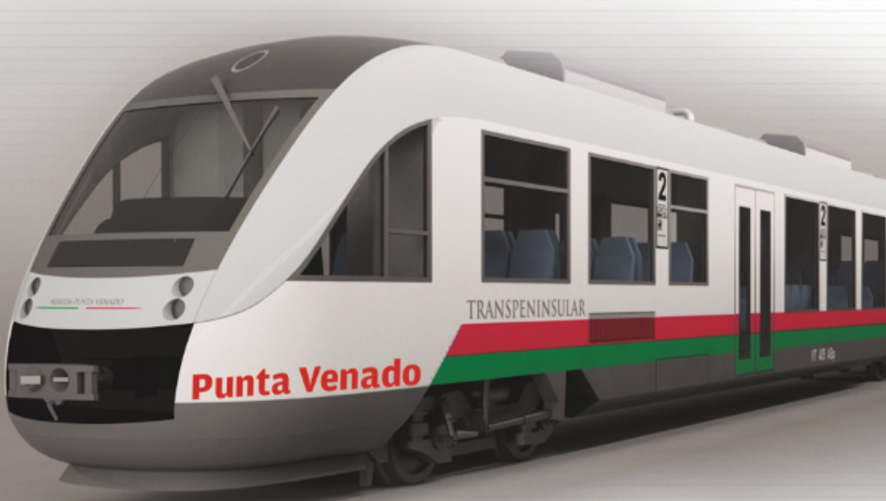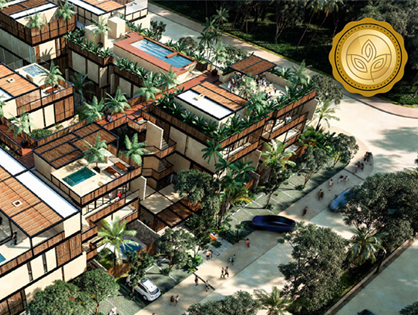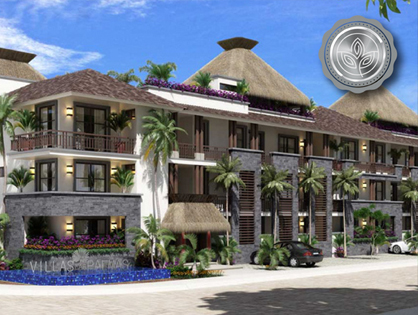
Trans-Peninsular Train Generates Great Expectations
The work in the Yucatan Peninsula includes the participation of the federal
government, private companies, small landowners and ejidatarios.
The transpeninsular tourist train project proposed by President-elect Andrés
Manuel López Obrador consists of a railway track with a medium-speed train
(no greater than 150 kilometers per hour) that effectively and quickly
communicates several important cities of the Mayan culture in the south. of
the Yucatan Peninsula.

The project represents 830 kilometers of railway line to cover the route from
Cancun to Palenque, with stops in Tulum, Bacalar and Calakmul.
The participation of the federal government, private companies, small owners
and ejidatarios is included in the project to make it feasible.
The initial investment is 35,000 million pesos for the first three years of the
project (of which one part can be private resources), while the total cost amounts
to 64,900 million, according to the National Project 2018–2024 of the president-elect
López Obrador.
The project is planned in four stages. The first comprises Cancún-Tulum: 129.1 km
with infrastructure costs of 28,100 million pesos and rolling stock of 4,400 million
pesos; It is a double track, elevated by 80% of the route with six stations.
The next phase is a single, level road, with two stations between Tulum and
Bacalar, whose total distance is 209.8 km. The costs of this stage are 11,400
million pesos in infrastructure and 1,400 million pesos in rolling stock.
The following section is a single track with two stations between Bacalar and
Escárcega with a distance of 268.6 km. The costs would be 12,100 million in
infrastructure and 1,500 million in rolling stock.
The fourth and final stage is 226.4 kilometers and runs from Escárcega to Palenque
with two intermediate stations; the costs would be around 5,300 million for
infrastructure and 700 million for rolling stock.
Right of way
The document also proposes that from the definition of the rights of way that the railway system and its stations will have, a strategy of acquisition or integration of territorial reserves must be made, so that they can absorb the needs of land for equipment and the development of services and products that, according to the different vocations of the soil, carry out projects and works of services, private investment or offer for housing of all kinds in the areas of influence or that receive the favorable impact of the road iron.
“That is why we intend to take advantage of the positive inertia of investment in this infrastructure, to order development and avoid negative impacts that could result from lack of planning and forecasting of negative phenomena in the field of urban development” , explains the National Project 2018–2024.
Positioning
Environmentalists and business chambers have expressed different positions on the project, from the necessary consultation to society and thorough review of its environmental implications, to the support for the generation of jobs that a work of this size means for the entire region.
The Vice President of Legal Support of the Mexican Chamber of the Construction Industry in Quintana Roo, Horacio Maya Terán, said that the investment for a project of this magnitude should be welcome, since it implies not only the work itself, but the entire infrastructure and economic dynamics that can be developed around the iron project.
For his part, Aniceto Caamal Cocom, who chairs the environmental association Yax Cuxtal, announced that from now on he will begin requesting that the communities be provided with all the information related to the train, as a project of this magnitude involves the expropriation of lands and the acquisition of rights of way that will necessarily affect communities throughout the peninsula.
The leader of the hoteliers of Cancun and Puerto Morelos, Roberto Cintrón, said that after the new government takes office, the ways of financing and the way in which the private initiative will be allowed to participate should be considered.
The vice president of the Caribbean Business Coordinating Council, Miguel Ángel Lemus, said that if the Cancún-Tulum corridor is currently attractive for investments, with an iron infrastructure like the one proposed, neighboring investments will be detonated, as a new tourism dynamic will be generated. not only in the northern zone of Quintana Roo, but it will connect with other regions rich in culture and natural attractions of the neighboring southeastern states such as Chiapas.
Library
Contact us
Ryan Gravel

Ryan Gravel is an American real estate broker and developer. He
began his career at a young age working for his family owned
construction company.
After graduating college at the University of Central Florida with
a degree in business, Ryan set out to find untapped prolific markets
around the world. His search landed him in Playa del Carmen, Mexico
where he founded Virgin Realty Mexico and co-founded the Saatal
Development Group one of the fastest growing development companies
in the Riviera Maya.
With extensive market knowledge, professionalism, etiquette,
innovation and integrity Ryan
is known as one of the most highly respected real estate advisors in the region.




